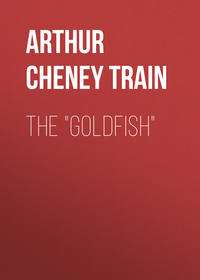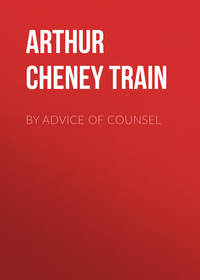 полная версия
полная версияThe Confessions of Artemas Quibble
"'Tis extraordinary," I said, "what a multitude of opportunities this new principle enunciated by the Court of Appeals affords to a man of an inventive turn of mind. As I take it, all one has to do is to induce another man to part with his money in the belief that he is going to take a sharp advantage of some one else. For example, let us suppose that I go to some person and falsely tell him that I have a client serving a term in Sing Sing for burglary who has confided to me the whereabouts of the secret hiding-place of his loot. All that is necessary is some one to put up sufficient money to cover the expense of transportation and excavation—and it can be divided between us. For this purpose he intrusts me with several hundred dollars, with which I make off. I have stolen the money fast enough, but I can never be punished for it."
"Exactly!" exclaimed my partner. "And here is another idea that is well calculated to appeal to almost anybody. It has just occurred to me quite involuntarily while you were speaking. Many of our clients want to know if they cannot send the judge, who is trying the case, a present of some sort, or maybe loan him a little money; and it is always distressing to be obliged to tell them—usually— that it is quite out of the question; that it would only get them into trouble. Of course, occasionally we let them send the judge a box of cigars, but always with the compliments of our adversary —never our own. Now this shows how readily persons who are mixed up in lawsuits or other difficulties would be ready to put up their money if they supposed the judge were going to get it. All you need is some unscrupulous fellow to go up to one of our clients and mention the fact that he is the judge's brother-in-law and is in dearth of ready money. Can't you see the client digging up the needful? He'd be stuffing it down our friend's pockets before he got through speaking; and the whole thing could be done quite openly, you observe, because, even if the client found out later that he had made a mistake, the law would not help him."
"An excellent illustration," I answered, "of the uses to which a legal decision may be put."
"Indeed, though," continued Gottlieb, "the scheme need by no means by as raw as all that. It is enough if there be merely an immoral or improper motive that induces the victim to part with his money. For example, if he but thinks that he can do a sharp trick to some one else. Let us suppose that I pretend to have secret information to the effect that certain property is really much more valuable than the owner supposes it to be. I propose to another that—if he will put up the money for that purpose—we shall buy the property, leading the owner to suppose he is getting full value for it. Now, if, to induce the latter to make the sale, it is agreed between us that we make false or misleading statements as to the real value of the property I do not see but that I would be perfectly safe."
"Safe?" I queried. "I don't understand. You would have bought the property, that is all."
"My dear Quib," returned my partner, "you seem singularly dull this evening for one of your brilliant parts. The point is that the property really isn't worth anything. I am in cahoots with the man who sells it; and we divide even!"
"Yes," I answered; "a dozen similar schemes could be worked like that."
"A dozen!" cried Gottlieb, bounding enthusiastically out of his chair and commencing to stalk up and down the room. "A hundred! Why, there are endless ways in which it can be worked—and I know the man to work them too!"
"Eh!" I exclaimed.
"I mean, who will undoubtedly avail himself of some of them," he corrected himself. "Take this case: It is a crime under the law to give back or rebate part of the premium on a life insurance policy. Now many a man could be induced to insure his life if he could get back the first year's premium. All you have got to do is to tell him that you are an insurance agent and will give it back—and then put the money in your own pocket, for he will have given you the premium for an illegal purpose—that is to say, with the idea of having it paid back to him contrary to law. Under the decision he will have no chance to get you arrested."
"Never say that you are not a man of ingenuity yourself," said I.
I bade my partner good-night and walked slowly homeward meditating upon the wonders of the law, but totally unconscious of what a harvest was to be reaped from the seed I had sown so innocently.
It was but a short time after this that, happening to enter the office somewhat unexpectedly one evening, I discovered Gottlieb in animated conversation with a stockily built man of about forty years of age, whose coal-black hair—by far his most conspicuous feature—had been suffered to grow quite long and was parted evenly in the middle, so that it gave him somewhat the appearance of the hooded seal that was then on exhibition at P. T. Barnum's museum. He had a good-humored face, jet-black eyes, and a familiar, easy way with him that put one on a friendly footing at once.
"Hello! Quib!" exclaimed my partner. "I want you to meet my friend, Charlie Billington."
"Delighted to meet you, Mister Quibble," cried the stranger, grasping my hand. "Our friend Gottlieb knows me almost better than I know myself—eh, Gottie? Between us we have turned many a trick."
"You mean that I have pulled you out of many a bad hole," retorted
Gottlieb.
"As you please," answered Billington good-temperedly. "But in any event you are a splendid fellow at all times—and especially in times of need."
"May I inquire your business, Mr. Billington?" I asked, curious to identify my new acquaintance.
Billington winked at Gottlieb.
"How would you describe it, Mr. Lawyer?" said he.
Gottlieb laughed and shifted his cigar.
"Our friend Charlie lives by his brains," he replied. "He is an inventor, a promoter, an artist. He has earned many a small fortune by the simple use of a postage stamp. He can extract gold from seawater or silver from pineapples. Incidentally, he is of a scientific turn of mind and can rattle off the Morse alphabet as deftly as any operator in the business. Occasionally he has, in the interest of finance, tapped a wire."
"Tapped a wire!" Instantly I regarded Billington with a new interest. So at last I had met one of those famous gentry of whom I had so often heard!
"Never again, I fancy!" laughed Charlie. "My friend, you have saved a lot of poor devils a deal of trouble. From this time on none of us will ever need to tap wires. After this we shall only pretend to tap 'em."
"How so?" I inquired, dropping into a near-by chair.
"Why, under the new law," responded Billington—"the law of which, I may say, you are the creator—we shall only have to induce some innocent countryman to believe that he has heard the result of a horse-race being sent over the wire in advance of the pool rooms, and persuade him to turn over his roll for the purpose of betting it on a horse that is presumably already cooling off in the paddock and we can keep his money, for he has parted with it for an illegal or an inimical purpose—to wit, cheating the bookies."
"Not with my sanction!" I retorted, somewhat aghast at the idea of having paved a broad and easy path for the way of criminals.
"Tut, tut, Quib!" said Gottlieb. "You have nothing to do with what use our friend here sees fit to put your law to. I have never yet advised any man how to do an illegal thing. The most I have ever done has been to show some of my clients how to do in a perfectly legal manner that which had heretofore been unlawful."
"Yea, Gottlieb," remarked Billington. "And many things that before were accounted faults have now, thanks to you, become virtues."
After Billington bade us good-night, Gottlieb said to me:
"Quib, the more I think of it, the more astonishing is the result of this new doctrine of yours that has been sanctified by the Court of Appeals. I do not for the life of me see how a seller of 'green goods' can be prosecuted. The countryman comes to the city for the purpose of buying counterfeit money at a ridiculously low figure. He puts up his money and gets a package of blank paper with a genuine one-dollar bill on top of it. What good will it do him to appeal to the police? Has he not parted with his money avowedly for a most wicked purpose—that of uttering counterfeit bills?"
"I quite agree with you," I answered. "There seems to be no escape from your result; and I, for one, do not see what is to prevent New York from becoming the Mecca of all the thieves and rogues in the country."
And such, indeed, it became. From this time on, until very recently, the metropolis was the stamping ground of all the rogues who could not earn a dishonest living elsewhere. With our friend Charles as their sponsor, there sprang into being herds of "sick engineers," fake "wire-tappers," "green-goods" swindlers, and confidence men of all sorts, who flourished safely under the protection of the decision of the Court of Appeals in McDuff's case.
It was but shortly after this that one of Billington's friends found himself in the toils of the police for having pretended to sell a package of "green goods" to a yokel from the rural part of the State. Charlie at once engaged me to defend him, asserting that as I was responsible for the law it was my duty to apply it for the benefit of our clients. So once again I entered the arena in behalf of a principle that at heart I believed to be vicious and even absurd, and once again, to my surprise and the delight of my new clients, I triumphed. The Appellate Division reversed the conviction that had followed the arrest and discharged the prisoner, asserting that there was no longer any authority for holding him if the McDuff case was to be taken as law.
Thus it was, by such unconscious steps, that I, the only son of a clergyman, found myself—willy-nilly—a leader of the criminal bar. Yet at no time during my career would I have exchanged places with my honored parent or even with Mr. Tuckerman Toddleham, of Barristers' Hall, Boston.
CHAPTER VI
As I jot down these random reminiscences I am impressed in a singular fashion with the fact that my career consisted entirely in the making, or rather getting, of money and the spending of it. I had no particular professional ambitions and never but once sought distinction as a constitutional lawyer; and, however unworthy of an officer of the court such a confession may be, I am quite ready to admit that a seat upon the bench would have afforded me neither amusement nor sufficient compensation to satisfy my desires. Let other men find their gratification and emolument in the supposed honor of wearing the ermine! I have never found that a judge became any the less an erring human being after his elevation to the dais, and I could rake out of one good semi-criminal case twice the salary of any judge on the supreme bench. What is popularly regarded as respectability is oft-times in reality—if the truth were known— merely stodginess and stupidity.
I am compelled to admit that in my early days, before I had formed my affiliation with Gottlieb, I had different ambitions, although they were none the less worldly. Then I wanted to be a judge because I supposed a judge was the king-pin of the profession. Now, as Pat Flanagan says, "I know different." The judge is apt to be no less a tool of the boss than any other public officer elected by the suffrages of a political party. He is merely less obviously so. There are a few men in Wall Street who can press a button and call for almost any judge they want—and he will come— and adjourn court if necessary to do so—with his silk hat in his hands. And if any young aspirant for legal honors who reads these fugitive memoirs believes that the road to the supreme bench leads via Blackstone, and is lighted by the midnight oil of study, let him disabuse himself of that idea, but seek rather the district leader; and let him make himself useful in getting the boys that are in trouble out of it. Under our elective system there is no more honor in being a judge than in being a sheriff or a hog-reeve; but, when one is young—and perhaps starving—it may seem otherwise.
If any of my lay readers believe that the practice of the law is a path of dalliance, let him but hazard his fortunes for a brief space on the good ship Jurisprudence—he will find the voyage tedious beyond endurance, the ship's company but indifferent in character and the rations scanty. I make no doubt but that it is harder to earn an honest living at the law than by any other means of livelihood. Once one discovers this he must perforce choose whether he will remain a galley slave for life or hoist the Jolly Roger and turn freebooter, with a chance of dangling betimes from his own yard-arm.
Many a man has literally starved at the law. And most of the profession nearly do so; while some, by merest luck, have managed to struggle on until they stumbled upon some professional gold mine. I have heard many stories of how some young men managed to pull success out of disaster when the odds seemed overwhelming. One which has particularly appealed to me I shall call the anecdote of The Most Capable Young Lawyer in New York.
Some years ago there came to the great city a young fellow who had always lived in a country town where the neighbors were all such good friends that they never went to law. He was able and industrious, but in his native place found it almost impossible to earn a living; and when by chance he met a well-known and prosperous attorney from New York who advised him to seek his fortune in the whirlpool rather than in the back eddies of life, he decided to follow the suggestion.
"I will endeavor to throw you something from time to time," said the prosperous lawyer, for it made him feel his own success to see such a poor young man and it tickled his vitals into benignity.
The country boy sold all his possessions for a few hundred dollars and came to New York. His friend was very kind in his manner and prolific of advice, but, unfortunately, he had no room in his own office for a junior or even an errand-boy. So Peters, for that was the young man's name, dragged himself up and down the city trying to find an opening, no matter how small. He was too old to begin as a clerk and too much of a bumpkin for anything else, and he found that nobody had any use for a young man of his particular type and training. At last, in despair, he hired desk-room in an office, shared jointly by half a dozen young men like himself, and waited for something to turn up; but nothing came. His bank account fell lower and lower, and he became more and more shabby. Moreover, he was eating his heart out with disappointment, for he could not return to his native town and confess himself a failure.
From time to time he would drop into his prosperous friend's offices, but the latter never had anything to turn over to him and he would return dejectedly to his own solitary desk. At last he was forced to give up lunch and get along as best he could on two scanty meals a day; he grew thin and haggard, his Adam's apple projected redly above a frayed collar, his trousers grew wrinkled and shiny, and he looked ready to take his place in the "bread line." Finally he spent his last cent on a pretzel and made ready to "turn in his checks."
At this point Peters paid a last visit to his friend, who was visibly shocked at his emaciated appearance, for his eyes burned with the fever of starvation and his jaw was set in a pitiful determination to keep going until he dropped.
"Mr. Banks," said he grimly, "unless you give me something to do
I'll go under. The fact is, I'm starving!"
Mr. Banks look at him critically.
"Pretty near ready to give up, eh?" he remarked. "Better chuck it and go back! I guess I was wrong when I told you to come down here."
"Not yet," answered Peters doggedly. "When I go back it'll be in a wooden box."
"Well," replied Mr. Banks, "I'm sorry; but there isn't a thing in the office I can give you." He pondered a minute. "I've got a lot of old judgments against a fellow named Rosenheim—in the cigar business, but he's no good—judgment proof—and they aren't worth the paper they're written on."
"Give them to me!" almost shouted Peters.
Mr. Banks laughed.
"You can have ninety per cent. of all you collect," said he as he bent over and, pulling out a lower drawer, removed a bundle of soiled documents. "Here they are. My blessing to you!"
Peters grabbed the transcripts and staggered down the stairs. It took him less than ten minutes to find Mr. Simon Rosenheim, who was sitting inside a brass fence at a mahogany desk, smoking one of the best of his own cigars.
"Mr. Rosenheim," said Peters, "I have some judgments here against you, amounting to about three thousand dollars."
"Yes?" remarked Rosenheim politely.
"Can you let me have the money?" inquired Peters.
"My dear fellow," retorted Rosenheim, with an oily sneer, "I owe the money all right, but I don't own a thing in the world. Everything in this room belongs to my wife. The amount of money I owe is really something shocking. Even what is in the safe"—he nodded to a large affair on the other side of the room—"belongs to somebody else."
Rosenheim had been through this same performance hundreds of times before, but not with the same dénouement.
Suddenly he saw a lean young man, with hollow cheeks and blazing eyes, leap over the brass railing. In another instant horny hands grasped him firmly by the windpipe and a voice hissed in his ear:
"Pay me those judgments or I'll strangle you here and now!"
With bursting veins and protruding tongue he struggled helplessly to escape as his assailant dragged him toward the safe.
"I mean what I say!" half shrieked Peters. "I'm starving! I'd as lief die one way as another; but before I die you'll pay up those judgments—every cent!"
Rosenheim was on his knees now before the safe, his eyes starting from his head.
"Open the safe!" commanded Peters.
Rosenheim, the sweat of death on his brow, fumbled with the combination; the tumbler caught, the door swung open. Peters lifted his captive enough to permit him to reach in and take out the bills.
"Count 'em out!" he ordered.
Rosenheim did as he was told, shaking with fear. Peters stuffed the money into his pocket.
"Now do your damdest!" he shouted. "I've had one piece of law business before I died. Good afternoon!"
Rosenheim crawled back to his desk, relit his cigar and endeavored to pull himself together. He had a half-scared, half-puzzled look on his face and once in awhile he scratched his head.
Meantime Peters repaired to the nearest hotel and ordered a dinner of steak and fried potatoes, washed down with a pint of champagne. He then purchased a new suit of clothes, a box of collars, a few shirts, and a hat. When he entered Mr. Banks' office an hour later the latter with difficulty recognized his visitor.
"I owe you three hundred dollars, I believe," remarked Peters, laying down the bills.
"Owe—me—What? You didn't get that money out of Rosenheim?" stammered Banks.
"Why not?" asked Peters casually. "Of course I did. Every cent of it."
Banks looked at him in utter amazement. He, too, scratched his head.
"Say," he suddenly exploded, "you must be quite a feller! Now, look here, I've got a claim against the Pennsylvania and Susquehanna Terminal Company for two million dollars that I wish you'd come in and give me a little help on. What do you say?"
Peters hesitated and pursed his lips.
"Oh, I don't mind if I do," said he carelessly.
You may have heard of the celebrated law firm of Banks & Peters— who do a business of about four hundred thousand a year? Well, that is Peters. Banks says he's "the ablest young lawyer in New York."
Peters, however, does not deserve the same credit as another young fellow of my acquaintance, since in Peters' case necessity was the parent of his invention; whereas in the other the scheme that led to success was the offspring of an ingenuity that needed no starvation to stimulate it into activity.
Baldwin was a youth of about thirty, who had done pretty well at the bar without giving any evidence of brilliancy and only moderate financial success. He perceived the obvious fact that the way to make money at the law is to have money-makers for clients, but he had no acquaintances with financiers and had no reason to advance to himself why he should ever hope to receive any business from such. Reading one day that a certain young attorney he knew had received a large retainer for bringing an injunction in an important railroad matter, it occurred to him that, after all, it was merely chance and nothing else that had sent the business to the other instead of to himself. "If I'd only known Morgan H. Rogers I might have had the job myself," thought he.
So he pondered deeply over how he could get to know Mr. Morgan H. Rogers and at last conceived the idea of pretending that he had a client who—without disclosing his name for the time being— desired to create a trust for the benefit of a charity in which the railroad magnate was much interested. With this excuse he found no difficulty in securing an interview and making an agreeable impression. The next step was more difficult.
Finally, having learned through a clerk in the banker's office with whom he had cultivated an acquaintance that Mr. Morgan H. Rogers was going to Boston at a certain hour that very afternoon, he donned his best funeral suit and boarded the same train himself. As he passed through the drawing-room car he bowed to the great man, who returned his greeting with the shortness characteristic of him, and passed on to the smoker, where he ensconced himself in a chair near the door, depositing on the seat next to him a pile of magazines and his coat. Half an hour passed and the car filled up, save for the seat next the young lawyer. Presently the bulky form of Morgan H. Rogers filled the door-way. He already had a black unlit cigar in his mouth and he scanned the rows of seats with ill-concealed disappointment. Then his eye caught the one occupied by our friend's coat.
"Let me have this seat!" said he abruptly.
"Oh, how are you, Mr. Rogers!" exclaimed the young lawyer.
"Certainly! Let me give you a light."
"Your name's Baldwin, isn't it?" inquired the banker as he took up a magazine. "Saw you about that trust matter last week, didn't I?"
"Yes," answered Baldwin. "Nothing has occurred in connection with it since then."
And he returned to his paper without paying any further attention to his companion. At Bridgeport a telegraph boy rushed into the car and yelled: "Baldwin! Mr. Baldwin!"
Mr. Baldwin held out his hand, in which lay half a dollar, and without much apparent interest opened the envelope and scanned its contents.
"H'm!" he remarked, half inwardly, and thrust the paper into his pocket.
At New Haven another boy boarded the train, calling anxiously for Everitt P. Baldwin—this time there were two telegrams; and just as the train pulled out a third arrived.
Mr. Baldwin read them all with the keenest interest and could hardly conceal an exclamation of satisfaction; but the magnate gave no sign. At New London there was another flurry and, in spite of himself, Mr. Baldwin slapped his knee and muttered: "Good enough!"
As the train started again Morgan H. Rogers let fall his magazine and growled half-facetiously:
"What the devil are all those telegrams about?"
"Just a little injunction suit," the young man answered modestly, "in which my firm has been quite successful." And, without giving any names—for, indeed, there were none—he sketched rapidly a hypothetical situation of the greatest legal delicacy, in which he had tied up an imaginary railroad system with an injunction, supposedly just made permanent. Morgan H. Rogers became interested and offered Mr. Baldwin a remarkably big cigar. He had been having a few troubles of his own of a similar character. In a few moments the two were deep in the problems of one of the financier's own transcontinental lines and a week later Baldwin was on Rogers' regular staff of railroad attorneys.
It is pleasant to reflect upon such happy incidents in the history of a profession that probably offers more difficulties to the beginner than any other. Yet the very obstacles to success in it are apt to develop an intellectual agility and a flexibility of morals which, in the long run, may well lead not only to fortune, but to fame—of one sort or another. I recall an incident in my own career, upon my ingenuity in which, for a time, I looked back with considerable professional pride, until I found it a common practice among my elders and contemporaries of the criminal and even of the civil bar.





